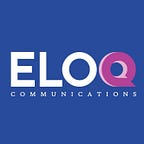Net zero: Tips for businesses to communicate the new sustainability trend
Net zero refers to a state in which there is no increase in the total amount of greenhouse gases (GHG) released into the atmosphere. According to the Intergovernmental Panel on Climate Change (IPCC), net emission would equal zero when “CO2 emission is balanced by removal out of the atmosphere in a certain amount of time on a global scale”.
More simply, we need to balance the amount of GHG emitted into the atmosphere by removing that same amount of GHG from the atmosphere. It means that no additional GHGs should be released into the atmosphere from now on. Plus, even upon achieving net zero, humans still have to deal with past damage and the impact of GHGs that we have previously put into the atmosphere.
Net zero has become a trend that many businesses are now following. A report from the United Nations (UN) showed that there are more than 130 countries in the world committed to reaching net zero by 2050 and 2070. At the 2021 United Nations Climate Change Conference (COP26), Pham Minh Chinh, the Prime Minister of Vietnam, also committed to reaching net zero in 2050.
The report also demonstrated that the number of enterprises and governments committing to net zero emissions has doubled in less than a year. This is a positive indicator that business leaders do care about climate change and are looking for solutions. Yet in reality, hastily chasing the net zero trend may result in poor communications plans and strategy development. Consequently, the term “greenwashing” was coined to describe the practice of labeling a business as “environment-friendly” to increase its value and reputation.
What should PR and communications industry do to approach net zero?
Nowadays, PR and communications play an essential role in communicating the values and business plans of many companies, organizations, and government agencies to the public. In accordance with the carbon-neutral commitments, PR practitioners are finding an effective way to communicate the key messages of net zero effectively. In this article, EloQ Communications will suggest some useful ideas and approaches to assist your business’s communications team in mapping out sustainable strategies.
Net zero shouldn’t be a trend
Any current trend only lasts for a short period of time before becoming irrelevant while net zero’s nature is long-term and sustainable. As a result, businesses and governments must consider net zero as a long-term goal and develop market-appropriate strategies. Therefore, communications activities for net zero activities should be devised into a long-term plan based on the businesses’ net zero accomplishments.
In addition, many countries’ pledges to reduce CO2 emissions to achieve net zero emissions should proceed to the Action phase. Business requires action, not just words. Publicize your net zero strategies and be transparent with your progress. It will be difficult to gain the media’s trust if you keep talking about your goals while doing nothing.
Get real and stay away from ‘greenwashing’
Non-governmental organizations and investors will not accept a company that tries to polish its reputation by conveying a false impression by labeling it as ‘environmentally friendly.’ The Korean cosmetics company, Innisfree, has become a case study in greenwashing.
In 2022, many customers reported that the label of Innisfree’s beauty product was misleading. On its packaging, there was a line claiming: “Hello, I’m paper bottle.” But it was actually still made of a thin plastic bottle, which was wrapped under a layer of paper to strengthen the figure. Innisfree’s initial intention was to reduce the amount of plastic used to make the bottle, but the ambiguous message has led to many criticisms.
Sustainable values of a business do not originate from flowery advertisements on television or social media, but it comes from the contribution to the environment. Greenwashing, a marketing ploy, is used to deceive customers who are concerned about the environment and have a tendency to buy goods and services from brands that care about the environment.
To demonstrate net zero commitment, what businesses need to do will not stop with communications plans. But it will also require companies to optimize their production systems, from raw material preparation, processing/production, logistics, and so on. Moreover, your business should provide statistics, and real-time evidence to build trust among the consumers. As a result, your business’s reputation will be synchronized both internally and externally; with the goal of eventually reaching net zero emissions.
Turn ‘less carbon’ into a mainstream lifestyle
Any change must start from the smallest steps. Net zero is a goal that takes a long time to achieve. We will not be able to complete it in one or two days. Therefore, influencing local communities can generate positive values and serves as a firm foundation for expanding net zero activities.
As a white-collar worker, the writer suggests that companies can encourage their employees to join hands and reduce CO2 emissions to attain the common goal of net zero. Derived from an environmental protection movement, your business can establish it as a core culture and develop it in a sustainable way.
To obtain the goal of reducing CO2 emissions, it is necessary for companies and governments to approach every corner of society and communicate meaningful messages to different target audiences using new and creative methods. Simultaneously, companies should pay attention to society’s demands in reducing climate change, as well as advocate and communicate the severity of climate change to the public as the world is changing faster and faster.
Written by Chi Duong, a PR Executive at EloQ Communications., a leading PR and marketing agency based in Ho Chi Minh city, Vietnam, and handling projects in Vietnam and throughout the ASEAN region.
Originally published at https://blog.eloqasia.com on August 26, 2022.
